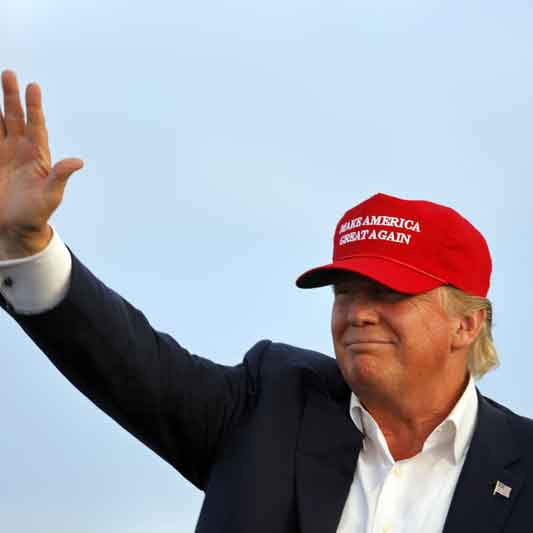President Donald Trump authorized extensive airstrikes targeting Iran-backed Houthi rebels in Yemen on Saturday, March 15, 2025. Images released by the White House show him in golf attire, watching the operation unfold. The photos, shared on the social media platform X, display Trump wearing a red MAGA hat that appears to have his autograph.
The images were captioned, “President Trump is taking action against the Houthis to defend US shipping assets and deter terrorist threats. For too long American economic and national threats have been under assault by the Houthis. Not under this presidency.”
In the photos, Trump is seen wearing a large black headset as he monitors the live bombings in the Middle East. National Security Adviser Mike Waltz and Secretary of State Marco Rubio were also present in the posts.
In a diplomatic effort, the State Department confirmed Secretary Rubio contacted Russian Foreign Minister Sergei Lavrov before the strikes. The communication aimed “to continue working towards restoring communication between the United States and Russia,” according to a statement.
The U.S. Navy-led operation, described by Trump as “decisive and powerful,” targeted several Houthi leaders and missile defenses in Yemen. The USS Harry S. Truman carrier strike group, stationed in the Red Sea, participated in the mission.
Trump announced the strikes on Truth Social, stating, “They have waged an unrelenting campaign of piracy, violence, and terrorism against American, and other, ships, aircraft, and drones. YOUR ATTACKS MUST STOP, STARTING TODAY.” He warned that the United States will employ “overwhelming force” to achieve its goals.
The president also issued a warning to Iran, urging them to cease supporting the proxy group and promising to hold them “fully accountable” for the actions of their allies. Trump emphasized that “hell will rain down” if they do not stop their aggressive actions.
The Houthi-run health ministry reported significant casualties, with Associated Press reporting at least 53 deaths, including women and children. The strikes impacted the capital, Sanaa, and other regions, such as the northern province of Saada.
The Houthis’ political bureau condemned the attacks as a “war crime” and vowed retaliation. Despite the U.S. military action, the group declared they would continue targeting shipping in the Red Sea until Israel lifts its blockade of Gaza.
Since November 2023, the Houthis have launched over 100 attacks on international shipping, disrupting global commerce and forcing many companies to avoid the Red Sea. As a result, many ships now take a longer route around southern Africa, costing the global economy “many BILLIONS of Dollars,” according to Trump.
Two ships have been sunk, and four crew members killed in these attacks, according to U.S. officials. The Houthis maintain control over the capital, Sanaa, and the northwestern region of Yemen, despite previous military efforts to weaken them.
This operation marks the first major missile strikes against the Houthis during Trump’s second term. While similar actions were taken under the former Biden administration, the Trump administration’s approach appears more aggressive, with officials suggesting the campaign might continue for weeks.
Critics have raised questions about the military action, noting Trump’s campaign promises. Some social media users highlighted the perceived contradiction with his pledge to start no new wars.
The administration, however, has defended the strikes as necessary to protect American shipping interests and naval assets. Trump characterized the Houthis’ actions as an “unrelenting campaign of piracy, violence and terrorism” supported by Iran.
Experts highlight that while these strikes represent the most significant U.S. military undertaking in the Middle East since Trump’s return to office, they may not accomplish their intended objectives. The Houthis control a rugged, mountainous area and have shown resilience despite challenges faced by Iran’s other regional allies.
The U.S. has designated the Houthi movement as a “foreign terrorist” organization, reinforcing the administration’s tough stance against the group.
The international community is closely watching the developments, with attention on responses from both the Houthis and Iran. Analysts suggest that Iran is unlikely to engage directly but may seek alternative responses.
The strikes and their consequences present a significant challenge for Trump’s Middle East policy and his administration’s strategy to address threats to vital international shipping lanes.

